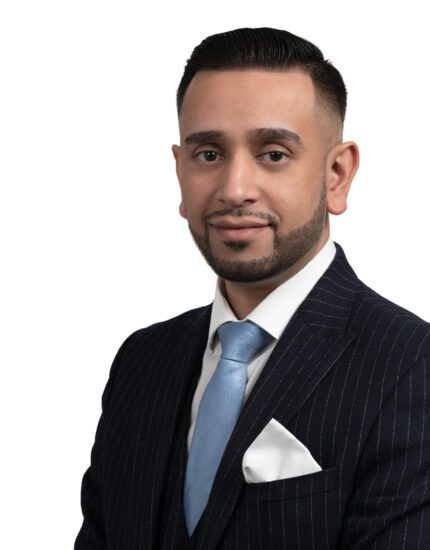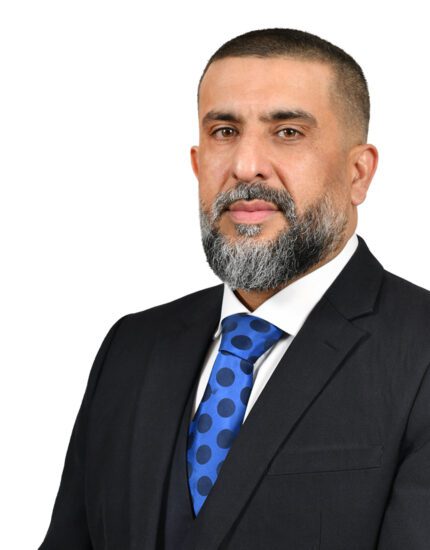If you’ve been charged, arrested or invited into the police station for an interview, you’re probably feeling stressed and worried. You’ll have concerns about what this might mean and what the outcome might be.
Whether the crime is carried out or not, the crime of conspiracy can be charged. The offence is based on the agreement to commit specific actions as part of a plan to commit a crime, rather than the carrying out of the plan.
Moreover, those who help to plan the crime, but do not take part in the criminal part of the plan can be handed the same penalty as those who actually carry out the offence. The essence of conspiracy charges is the agreement to carry out the offence.
Conspiracy charges are considered to be very serious when it comes to law. The penalty is harsh, and it can carry as much as life imprisonment if you are convicted. It’s vital that you secure competent and experienced legal support throughout the interview, investigation and prosecution processes to ensure that every detail and angle of defence is considered.
As soon as you find out that you’re being investigated or are being charged with a conspiracy charge, it’s essential that you seek good legal advice immediately. By working with skilled criminal solicitors, you may even be able to have your case dismissed before it reaches the ourt stage.
Have you been accused of a Conspiracy Charge?
If you or somebody close to you has been accused of being involved in a conspiracy, you’ll no doubt be feeling stressed and concerned about what the outcome might be.
In some cases, people are accused of playing a role, but in reality, they haven’t. In cases of this nature, it’s crucial that you get your name cleared and any connection to the crime removed.
To help explain what’s involved with conspiracy charges, we’ve collected the most common questions together with their answers. We aim to provide you with support and guidance as you go through this challenging time. If you have a question that isn’t answered below, then feel free to contact us and we will provide you with an answer.
What type of actions are considered Conspiracy?
Here are some examples of crimes that are included in the overall umbrella of conspiracy charges and may have led to the situation at hand.
Conspiracy to import drugs – for instance, planning with a contact on how to bring any class of drugs into the UK from abroad.
Conspiracy to supply drugs – for example, planning with another person how to supply drugs to any third party.
Conspiracy to steal – an example of this might be the planning of a robbery in your local area of a commercial property or a residential property or even a vehicle.
Conspiracy to evade duty – for instance, getting together with a friend to work out how you can bring something into the country without needing to pay import duty on it.
Conspiracy to launder money – in this case, it might be discussing with a friend how to launder money that is classified as ill-gotten gains.
There are many other examples. If you would like to know more about whether a crime that you’ve been linked to is classified as a conspiracy, you can always make contact with us for further information.
What happens in a case involving Conspiracy Charges?
When an investigation into any case involving conspiracy charges takes place, the accused are likely to find it very stressful. You will be feeling a level of anxiety about how something like this can affect the well-being of both yourself and your dependents.
If you are convicted and imprisoned, then it’s unlikely that you’ll be able to make an income. Thinking about this is likely to leave you feeling concerned about whether your dependents will have enough money to cover the payment of a mortgage, household bills and groceries.
Understandably, this situation will make you feel as though your life is unstable and unsettled.
Every conspiracy case is different. However, whatever the circumstances of your case, it’s vital that you speak with a competent solicitor about your situation. Once you discuss your case with somebody capable of giving you legal advice, support and guidance – you will get the peace of mind that you’ll need to navigate your case with the best possible outcome.
Conspiracy charges: you may have been falsely accused of being involved
It’s important to note that there are many cases where people have been wrongly accused in conspiracy charges. It might be that a person has been named by an accused, their phone has been used by somebody else, but they don’t know anything about what they are being accused of. If you find yourself in this situation, it’s essential that you engage a strong defence team to get your case dismissed.
For example, the prosecution has been known to attempt to charge a person with conspiracy charges to find out who was involved. A robust legal team would be able to recognise if this is a case of throwing mud to see what sticks and take whatever action is necessary to have the case dismissed before it reaches the court stage.
Without a lawyer, you cannot find out more until the interview
If you discover that you or your loved-one are under investigation as part of a conspiracy charge, you may be invited to attend the police station for an interview.
It’s a tactic of the police to not disclose all evidence until the time is right for them to do so. You are unlikely to discover all the information the police have on you until they want to disclose it. The police are known for withholding evidence in an attempt to try to trip you up and for you to incriminate yourself. By engaging a competent solicitor with expertise in this arena, you will be able to access information on how to protect yourself and what to say.
Also, you should know that the police are likely to have secured permission to look into all areas of your life. Their goal is to obtain evidence that they can then use against you. This may mean that they have secured a search warrant to enter your home or workplace.
Instruct a legal professional as soon as possible
Without a doubt, you should not attend a police interview without the support of a competent criminal solicitor.
Probing questions that are asked in a high pressure environment can be very difficult to navigate. You may find it very upsetting. The police do their utmost to get you to say something to incriminate yourself while withholding evidence that they have obtained to prove their case against you. They are looking to gain a conviction.
Without guidance, there is a chance that you will be charged at the end of the interview with conspiracy offences.
What should you do if you get arrested or charged with Conspiracy offences?
Conspiracy charges are an area of the law that is complicated. You may feel that you don’t need to take legal representation, and although you aren’t obliged to do so, we recommend that you do.
English laws are in a constant state of flux. Only the most proficient lawyers stay on top of them and comprehend how they can be applied to support your case.
Using a criminal solicitor who has in depth knowledge of the law in addition to extensive experience is what makes the difference. They comprehend the laws and understand how they can be used to get you off a charge of this nature. You are supported throughout the process to get you the best possible outcome.
Hiring specialist legal experts will give you peace of mind.
Can the police search my home?
The police will request the courts for a search warrant so that they can legally search your home and possibly your workplace for evidence. They will search for evidence on phone bill statements, money transfers and unexplained assets. They may put you and your family and any connections under surveillance.
The police can also search other premises which are connected to you or that you frequently visit, such as your partner’s home or your relatives’ home.
Could you go to prison for Conspiracy Charges?
Conspiracy charges are a serious offence that come with severe punishment if you are convicted.
Of course, this will be a worrying time for you and your family. For these reasons, it’s crucial that you take the right steps to protect the well-being of you and your family.
It’s imperative that you engage a criminal solicitor who handles conspiracy charges on a daily basis.
Sentences are usually very severe, even for the remotest involvement in a conspiracy offence.
If you were on the look-out, whilst others you know went onto commit a murder; you will be given a life sentence in addition to a similar minimum period of incarceration as the person whop physically committed the murder.
What type of sentence could you get for Conspiracy Charges?
Conspiracy charges cases are heard at a crown court. If the jury finds you guilty and you are convicted, in the most serious of cases, the maximum prison time you will receive is life imprisonment.
In any type of conspiracy, whether it conspiracy to defraud, conspiracy to launder money, conspiracy to commit robbery, conspiracy to steal or conspiracy to import drugs; the sentences imposed will be very long and punitive.
It is crucial that you seek advice very early on and pro-actively take steps to defend yourself and minimise the chances of being convicted. The earlier you start building your defence, the more time you will have to perfect it. Read more information about sentencing for Conspiracy Charges
What mitigating factors may be considered in sentencing?
The extent of the term of imprisonment and other penalties in conspiracy cases will depend on your involvement, how serious the crime is and whether it was carried through or not.
Your mitigation will be crafted by your expert criminal solicitor. Mitigation for these serious offences requires an advanced level of planning and research and usually, we will for example:
- consider sentences imposed in past similar cases, to find an argument for the most lenient sentence
- consider the sentencing guidelines and find reason to persuade the judge to issue a sentence lower than the guidelines
- find facts which distinguish your case from other cases of a similar nature, where lengthy sentences were imposed
- Establish if you provided any assistance to the police or the courts when you were giving your side of the story and whether that ended up helping the police or prosecutors in any way
- collect evidence your previous criminal history (hopefully, the lack of) and show the judge that this was a one-off and isolated incident
- find evidence of your standing in the community, your good character and nature, your good deeds, your responsibilities and information on the number of people who are likely to be affected by your absence
- there are many others points of mitigation we will consider, as each case depends on its own individual characteristics, the court itself, the nature of the judge, the type of prosecutor, the involvement of the police officer, the interest of the media, the attention of the public and so on.
Does a conviction for Conspiracy Charges go on your criminal record?
If you are convicted of conspiracy offences, your conviction will be noted on your CRB / police record. The period of the endorsement will depend on the type and the length of the sentence.
More than likely, the endorsement will be for life, as the prison sentence is more than certainly in excess of 4 years.
How Can Stuart Miller Solicitors Help?
Our criminal solicitors have over three decades of experience in defending conspiracy charges involving some of the most complex and serious prosecutions ever to have taken place in the UK. Regardless of the substantive offence, conspiracy charges are governed by the Criminal Law Act 1977 and demand the minds of the very best criminal lawyers and criminal barristers.
As explained in our article about conspiracies, the subject matter is highly complex and requires specialist criminal solicitors deciding on what the defence should entail. The key focus must always remain on the prosecution’s evidence. To understand what approach the prosecution are taking and to devise a strategy which leaves the defence case stronger, more believable and more persuasive than the other side.
You should expect your criminal solicitors to identify weaknesses in the prosecution’s case, to pick out missing evidence after cross-analysing the material, to challenge inadmissible evidence and to contest illegally obtained evidence.
Your defence team must work with you to understand the facts of every key event, as if the criminal solicitor was present at the event himself. Inevitably, the prosecution will have seized mobile phones and other computer equipment. The police may even serve material obtained by covert surveillances. They will analyse digital media using forensic experts and they will produce cell site evidence and copies of digital evidence to prove your whereabouts on key dates and times, your acquaintance with others in the case, your relationships, the frequency of your general contact and then, the frequency of your contact on key dates or in key locations.
Our criminal solicitors who regularly defend conspiracy charges will be pro-actively looking for evidence or ways to rebut the prosecution’s assertions. For example, the prosecution may suggest your contact with a named individual was for the purposes of furthering the conspiracy; your defence team will analyse your previous historical contact with the same person and try to show the normality of the contact and meeting.
Thus it is crucial for criminal solicitors to engage the very best forensic, telephony and computer experts. Experts who can be trusted to take the controversial stance and provide evidence to help your defence. We will gather as much evidence as possible by undertaking our own investigations and we will speak to all witnesses who stand a chance of providing useful testimony to the court.
More importantly, however, from the early stages of the case, we will begin to analyse the likely defence of others accused of being in the conspiracy to protect you from what they say and what evidence they bring.
Would you like to discuss your case before instructing us?
If you’d like to have a no obligation chat with us before you instruct us to take your case, then call us today.
Please contact our criminal solicitors about your conspiracy charges case to arrange your meeting, whether face to face, online or by telephone. If you prefer, you can also send us a WhatsApp message using the link on this page.


